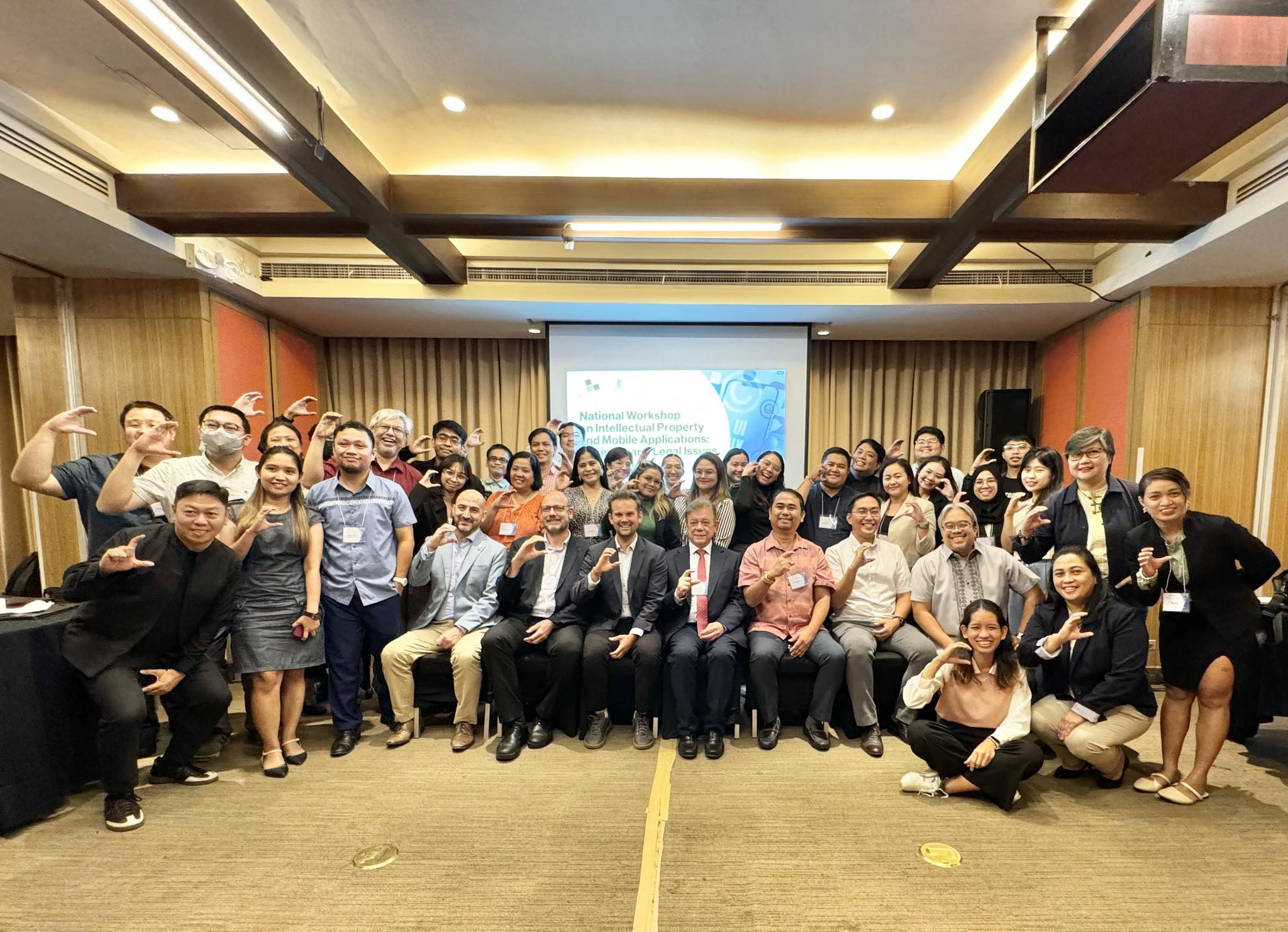Our CEO, Andrew Savitz, had the honor of leading a number of sessions at the National Workshop on Intellectual Property and Mobile Applications: Business and Legal Issues, organized by the World Intellectual Property Organization, in cooperations with the Intellectual Property Office of the Philippines Bureau of Copyright and other Related Rights (IPOPHL – BCRR) in Manila, Philippines on June 24 – 25th, 2024.
What is WIPO?
The World Intellectual Property Organization (WIPO) is the United Nations agency that serves the world’s innovators and creators, ensuring that their ideas travel safely to the market and improve lives everywhere. WIPO’s mission is to help governments, businesses and society realize the benefits of IP.
The agency provides a policy forum to shape balanced international IP rules for a changing world; global services to protect IP across borders and to resolve disputes; technical infrastructure to connect IP systems and share knowledge; cooperation and capacity-building programs to enable all countries to use IP for economic, social and cultural development; and a world reference source for IP information.
WIPO was represented by Mr. Dimiter Gantchev, Deputy Director and Senior Manager, Information and Digital Outreach Division, Copyright and Creative Industries Sector, WIPO, based in Geneva, Switzerland.
What is IPOPHL
The Intellectual Property Office of the Philippines (IPOPHL) is committed to building an inclusive intellectual property system serving the needs of Filipinos.
Topics Discussed
Andrew’s sessions revolved around the importance of understanding and utilizing intellectual property to protect your business, the various legal protections that allow you to do so, and the strategic application of them throughout the lifecycle of your business.
When many intellectual property (IP) laws and protections were put into place, it was prior to the digital era. Many uses of IP revolved around writing and physical products. There are many new challenges in the current digital marketplace, with lower barriers of entry (if you know how to code, you can quickly create a product in a short period of time, with little capital needs) – which drastically increases the importance of IP rights and enforcement. The issue with many small businesses is there are limited resources, and many do not prioritize formal IP protection. And we all face the challenges of balancing the time in which it takes to formally file for such protections, and the speed at which technology evolves, as often many technologies we develop may be obsolete by the time protection is officially granted.
There are five key types of IP to consider when protecting your business:
- Trademarks
- Protect brand names, slogans, and logos that are used in the market to help consumers distinguish among products including words, symbols, sounds, or smells.
- Copyrights
- Protect original creative works in tangible form, such as books, movies, songs, paintings, photographs, and web content or code (limited to the actual code, and not the idea).
- Patents
- Protect a product or process that is new, valuable, and non-obvious. In app development, the technical innovation resulting from the software is patentable.
- Trade Secrets
- Protect proprietary and confidential information used to differentiate a business (such as Coca-Cola’s formula or an algorithm)
- Rights of Publicity, Design, and Databases
- Protects public use of a photo or name, design-specific innovations, and databases.
In our sessions, we discussed the importance, application, pros / cons, and other factors surrounding each of these types of IP and what protections exist for each.
We also covered three key strategies for defending your valuable IP:
- Legal Protection:
- Filing for Trademarks, Copyrights, and Patents
- NDAs, IP Assignments, Employee / Partner Agreements, Licensing Agreements, and other contracts
- Market Protection:
- Building a strong, trustworthy and memorable brand.
- Achieving momentum and market dominance.
- Differentiating your product significantly enough to stand out from competition.
- Which includes rapidly innovating and evolving your product over time.
- External IP Protection:
- Utilizing unique combinations of Open Source Software, or licensing paid softwares / patents in order to build the best product as quickly as possible, instead of focusing on building 100% unique code for your entire product.
- Joining standards organizations to gain access to IP
- Strategic partnerships and relationships.
Using Branding to Protect Your Business
Branding, which falls under Trademark protection, is in our perspective, the most effective ways for many startups and technology based businesses to protect themselves from competitors and copycats.
Not only are you able to file for formal protections, via trademarks, but you are also building a reputation that allows you to distinguish yourself from competitors in the market.
Focusing on a professionally developed, consistent brand that delivers a high quality product or service, with amazing user experience and customer service is our favorite and preferred method of protecting and differentiating your business, especially when you are just getting started. By constantly optimizing and evolving your product, you are not only improving your ability to serve your customers, but you’re also making it difficult for copycats to keep up – as they’ll always be a step behind you.
In Conclusion
Though legal protection can be an incredibly valuable method for protecting and building your business, there are certainly situations in which it simply does not make sense. Whether it be cost or time prohibitive, or you are innovating at such a rapid rate that your legal protections become obsolete by the time they are officially granted, there are many factors to consider when determining if it is worthwhile to protect your business’s IP via legal mechanisms.
There is, however, almost always a case to be made for protecting your business through the development of a strong, reputable brand, protected via a registered trademark.
If you are looking for help developing a recognizable, protectable, and memorable brand, Canned Spinach is always happy to help provide information on what goes into building a brand. If you are looking for a professional partner to help develop your brand for you, we are excited to talk!




